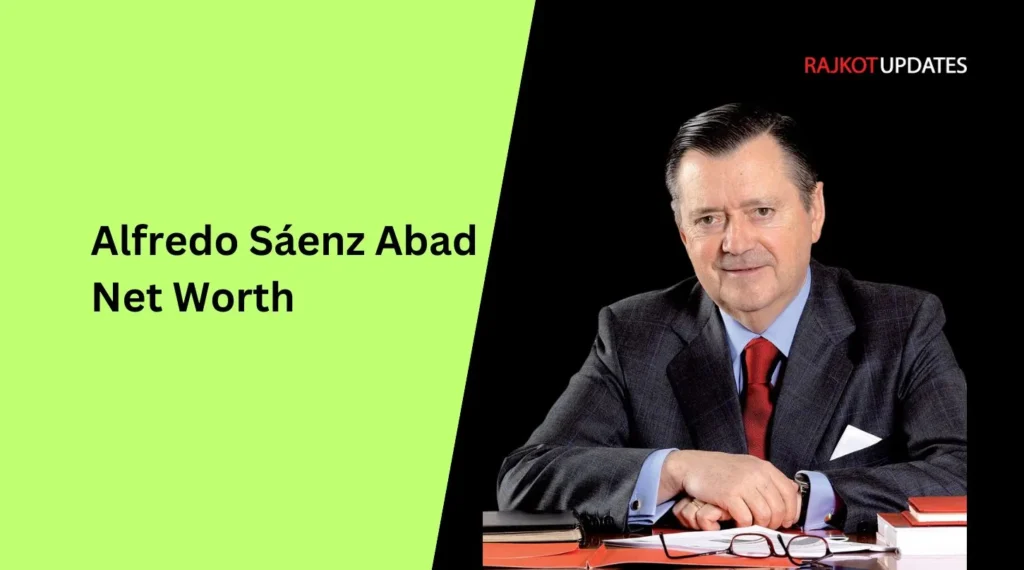Alfredo Sáenz Abad is a prominent Spanish businessman. As of 2024, Alfredo Sáenz Abad net worth is $120 million.
As the former CEO and Vice-Chairman of the Spanish bank Santander Group, he played a crucial role in transforming it into the largest bank in the Eurozone and one of the world’s most significant banks by market capitalization.
Career Highlights
Born on November 21, 1942, Alfredo Sáenz Abad began his professional journey as an Executive Manager at Tubacex S.A. in 1965.
He remained with the stainless steel manufacturer until 1980. In 1983, he transitioned into the banking sector, taking on the role of CEO and Chairman at Banca Catalana until 1988.
That same year, he joined Banco Bilbao Vizcaya as CEO and Chairman before becoming Chairman at Banco Español de Crédito in 1993.
In 1998, he was appointed First Deputy Chairman at Inmobiliaria Urbis S.A.
In 1994, Sáenz joined Banco Santander’s board, quickly advancing to Vice Chairman and CEO in 2002.
During his tenure, Banco Santander aggressively expanded, acquiring several banks and establishing itself as a banking powerhouse.
Despite a long-running legal battle with the Bank of Spain dating back to 1994, he served as CEO until April 29, 2013.
In 2012, Institutional Investor magazine voted Sáenz the second-best CEO in European banking.
Under his leadership, Euromoney named Banco Santander the Best Bank in the World the same year.
Sáenz retired in 2013, receiving a substantial €88 million retirement package after 19 years of service.
In February 2016, Sáenz became president of the BDK Financial Group, founded by Alberto Cortina and the parent company of the Bank of Dakar, based in Senegal’s capital.
On March 8, 2016, he acquired a 5% stake in BDK Financial Group.
Academic and Advisory Roles
From 1965 to 1984, Sáenz taught at the University of Deusto. In 1985, he joined the International Academy of Management.
Between 1997 and 2000, he served on the European Advisory Council of Air Products & Chemicals, and in 1999, he joined the International Advisory Board of London Business School.
He chaired the European Financial Management & Marketing Association in 2000.
Sáenz also held positions in various foundations, including Foundation Conde de Barcelona, Foundation Empresa y Sociedad, Foundation Cruz Roja Española, and Foundation Ayuda Contra la Drogadicción.
Accolades
Alfredo Sáenz has received numerous accolades. In 1998, he was awarded the Spanish government’s Gold Medal (Medalla de Oro al Mérito en el trabajo) for his contributions to work.
In 2006, the consulting firm AT Kearney honored him with the Manager Award for the best manager in financial institutions.
In 2012, Institutional Investor magazine ranked him as the second-best CEO of European banks, based on a poll of 1,470 analysts across 150 companies.
Legal Challenges and Retirement
In 2011, the Spanish Supreme Court banned Sáenz from working as a banker for three months after a prolonged legal battle with the Bank of Spain.
This stemmed from a 2009 conviction where he was found guilty of making false accusations against supposed debtors to Banesto (now part of Santander), leading to their temporary imprisonment in 1994.
Despite this, Santander announced that Sáenz would appeal the decision and continue working.
If his conviction had stood, Sáenz would have lost his job. Instead, he negotiated a deal with the authorities that converted his prison sentence into a pardon and reduced the penalty to a nominal fine.
However, in February 2013, the Spanish Supreme Court ruled that the government had overstepped its authority in pardoning him, prompting the Bank of Spain to reopen the case.
Sáenz chose to retire from Banco Santander in 2013, which ultimately spared him from a potential industry ban.
Also Read:
Conclusion
Alfredo Sáenz Abad’s career is a testament to his resilience and expertise in the banking sector.
Despite legal challenges, he has left an indelible mark on the financial industry, particularly through his leadership at Banco Santander.
His contributions to banking and his numerous accolades reflect his significant impact on the industry.






